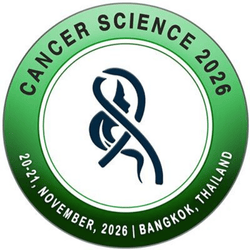Track: Breast Cancer and Treatments

Breast cancer treatment has witnessed tremendous advances, with a shift toward more personalized and targeted approaches that improve patient outcomes while minimizing side effects. In this session, we will explore the diverse range of treatment options available today, from traditional methods like chemotherapy and radiation to cutting-edge therapies like immunotherapy and targeted treatments. The session will also address the importance of multidisciplinary care, including psychological and social support, for patients at all stages of treatment. Join us for a deep dive into these transformative developments and the promising future of breast cancer care.
Surgical Advances in Breast Cancer Treatment
In recent years, breast cancer surgery has evolved with a focus on less invasive procedures and improved cosmetic outcomes. Oncoplastic surgery allows for better breast conservation without compromising cancer control. We will also explore innovations like sentinel lymph node biopsy, which reduces the need for extensive lymph node removal, decreasing side effects and improving recovery times. These advancements are enhancing both the survival rate and the quality of life for patients.
Chemotherapy and Radiation Therapy: Current Trends
Although chemotherapy and radiation remain essential components of breast cancer treatment, ongoing research has led to better methods for minimizing toxicity and improving effectiveness. This subtopic will focus on dose adjustments, new combinations of treatments, and radiation techniques like intensity-modulated radiation therapy (IMRT) that reduce damage to healthy tissues. We'll also discuss how these therapies are integrated with other treatments for more effective, personalized care.
Targeted Therapy and Personalized Medicine
Precision medicine has revolutionized breast cancer treatment by focusing on therapies tailored to the genetic characteristics of both the patient and the tumor. This includes targeted treatments like HER2 inhibitors and CDK4/6 inhibitors that specifically target cancer cells while sparing healthy tissue. We will discuss how genetic testing and molecular profiling are used to determine the most effective therapies, reducing unnecessary treatments and improving patient outcomes.
Immunotherapy in Breast Cancer
Immunotherapy, which harnesses the body’s immune system to fight cancer, has shown promise in treating breast cancer, particularly in triple-negative breast cancer (TNBC) and HER2-positive subtypes. This subtopic will cover the latest developments in immune checkpoint inhibitors, cancer vaccines, and monoclonal antibodies that enhance immune response. Participants will explore the current success rates and challenges of immunotherapy and its potential to transform treatment options for difficult-to-treat breast cancer cases.
Biomarkers and Liquid Biopsies for Early Detection
Biomarkers play a critical role in detecting breast cancer early and predicting treatment responses. Liquid biopsies, which use blood samples to detect cancer-related genetic material, offer a non-invasive way to monitor disease progression and recurrence. We will explore the growing role of biomarkers in identifying patients at high risk for recurrence and how these diagnostic tools are integrated into treatment planning. This session will highlight the promise of liquid biopsies in providing real-time information and improving patient management.
Scientific Highlights
- Cancer Research
- Types of Cancer
- COVID 19 Impact on Cancer
- Screening & Diagnosis for Cancer
- Cancer Biology and Genetics
- Theraphies for Cancer Treatment
- Cancer and Oncology Nursing
- Molecular Pathways and Signaling
- Breast Cancer and Treatments
- HER2 Positive Breast Cancer
- Breast Cancer Surgery
- Radiology and Oncology
- Oncology Nursing & Patient Care Models
- Palliative & Supportive Oncology Care
- Advances in Breast Cancer Immunotherapy
- Liquid Biopsies in Early Cancer Detection
- Robotic Assisted Breast Cancer Surgery
- Triple Negative Breast Cancer (TNBC)
- Genomics and Cancer Biomarkers
- Artificial Intelligence in Cancer Prognosis
- Precision Onco-Urology


